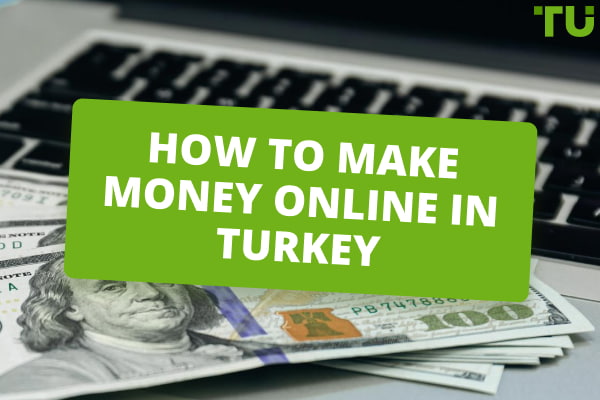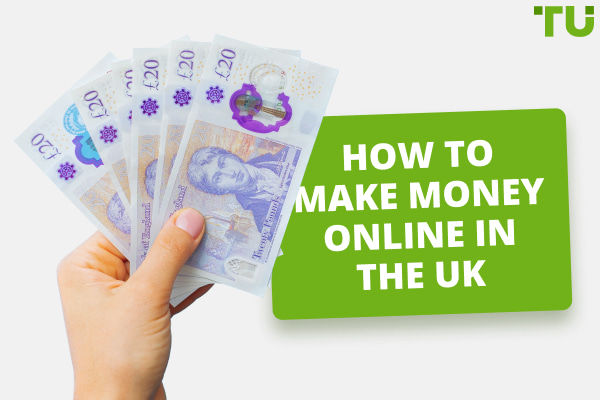Where To Invest Money In Turkey
The best investments in Turkey:
-
Real estate - Tangible asset with potential for passive income; offers opportunities to buy undervalued properties and benefit from value growth
-
Precious metals - Tangible assets like gold and silver; historically act as an inflation hedge and offer portfolio diversification
-
Large company securities - Diverse investment options including stocks, bonds, and ETFs; allows ownership in companies and potential for dividends
-
Copy trading - Digital platform investments; replicate strategies of seasoned traders with potential shared profits
-
Cryptocurrency - Digital currency investments; decentralized platforms with potential for high returns and streamlined remittances
As the world's economy fluctuates, savvy investors are constantly looking for the best areas to put their money. Turkey, with its advantageous geographical location, skilled workforce, and tax incentives, is becoming a popular destination for investments. Whether you're considering real estate, precious metals, or securities, Turkey offers a variety of opportunities for both novice and seasoned investors.
Investments in real estate
Real estate, encompassing land and the structures on it, has been a cornerstone of wealth generation for millennia. Today, it remains a sought-after asset class for many investors, offering both tangible value and potential for passive income. But is diving into the property market the right move for you? Delving deeper into the advantages and drawbacks of real estate investments can provide clarity on this pivotal financial decision.
👍 Pros
• Buying undervalue. Sometimes, opportunities pop up to buy properties for less than their market value. This happens particularly when sellers need to make a quick sale, and the buyer is financially ready. However, a deep understanding of the local market is crucial
• Regular income. If you rent out the property, you'll earn money every month. Plus, if your property has extras, like a parking spot, you might earn a little more
• Tax advantages. The value of properties goes down over time, at least on paper. This "depreciation" can be deducted from your taxes, which means you might pay less
• Value growth. Pick the right property, and its price could go up over the years
• Protection from inflation. As prices of goods and services increase so does the value of properties. This means real estate can protect your money from losing value
• Leverage. Real estate allows you to buy big with a small down payment, especially if you get a mortgage. This way, the money you earn from the property could be more than what you've invested
• Delayed taxes. The increase in your property's value isn't taxed until you sell. And sometimes, you can delay paying this tax even more
• Growing income. If rents go up and you've locked in a consistent mortgage payment, you could earn more from your property over time
👎 Cons
• Time-consuming. Real estate isn't a "get rich quick" plan. It needs careful planning and patience
• Unsteady income. Sometimes, you might not find people to rent your property, or they might pay less than you hoped
• Unexpected costs. Owning property means things will break or wear out. When they do, it's on you to fix them, which can be expensive
Investments in precious metals
Precious metals, like gold and silver, have been cherished for their value and beauty for centuries. Today, many consider them as a part of their investment portfolio. But should you invest in them? Let's take a closer look at the pros and cons.
👍 Pros
• Inflation hedge. One of the most compelling reasons investors gravitate towards precious metals is their potential protection against inflation. Historically, as the purchasing power of fiat currencies diminishes, precious metals tend to retain or even amplify their value. In an era where inflationary pressures can erode the real value of money, having an asset that can counteract this trend is invaluable
• Tangibility and inherent value. In a world increasingly dominated by digital assets, there's a certain comfort derived from possessing tangible assets. Precious metals are physical, real-world entities, immune to digital disruptions or electronic malfunctions. Their inherent value is palpable and enduring, offering a solidity that digital representations of wealth often lack
• Liquidity. Precious metals enjoy near-universal recognition and value. Whether you're in New York, Tokyo, or Johannesburg, these metals can be easily converted to cash, ensuring you have access to funds whenever the need arises
• Diversification. Financial markets can be volatile, with equities and bonds often moving in tandem in reaction to global events. Precious metals, however, often dance to their own rhythm, providing a diversification opportunity. In many turbulent market scenarios, they have acted as a counterbalance to other investment instruments, thus stabilizing portfolios
👎 Cons of precious metals investment
• Storage concerns. Owning physical metals requires thoughtful consideration regarding storage. While it’s possible to hold these metals personally, safeguarding them can necessitate additional expenses, like renting safety deposit boxes or investing in high-security safes
• Theft risks. Tangibility, while a strength, also introduces vulnerability. Precious metals can be targeted by thieves. Although insurances can provide coverage against such eventualities, it introduces an additional layer of cost
• Tax implications. Profits derived from the sale of precious metals can attract capital gains tax. In some jurisdictions, these taxes might be steeper than those applied to traditional investments. An astute investor must be cognizant of these tax implications to ensure the net returns are favorable
• Lack of passive income. Unlike dividend-yielding stocks or rental real estate assets, precious metals are passive in nature. They don’t generate regular income streams. Their value is realized only upon sale, making them a more static investment compared to other dynamic assets
Investments in the business of large companies (securities)
Investing in securities is akin to cultivating a diverse garden. Just as a gardener plants a mix of seeds, investors can diversify with stocks, bonds, and ETFs. While the right strategies can lead to flourishing returns, the financial climate, much like the weather, can be volatile. Here's an overview of the potential rewards and challenges of delving into the varied world of securities.
👍 Pros
• You get ownership of the company. When you buy stocks, you own a part of that company, even if it's just a tiny fraction. And if you own enough, you might even get a voice in big company choices. It's like having a say in how your garden grows
• Your time is yours. Unlike a 9-to-5 job where you punch in and out, investing doesn't tie you down. You can review your investments when it suits you. It's a bit like checking on your garden when you feel like it
• Your money can grow. If the company does well, its stock price might go up. And if you sell your stocks for more than you bought them, you make a profit. It's like selling the juicy tomatoes that grew from your seeds
• Extra cash in your pocket. Some companies, especially the ones making good money, might share a part of their earnings with stockholders. This share is called a dividend. Think of it as a bonus fruit from your garden
👎 Cons
• It's a gamble. Just as not all seeds turn into plants, not all stocks will make you money. In fact, you might even lose what you put in
• It can be nerve-wracking. Stock prices go up and down every day, and watching these changes can be like a rollercoaster ride. It might be exciting for some but stressful for others
Investing in successful traders (copy trading)
Copy trading allows investors to replicate the strategies of seasoned traders in real-time. In this digital age, it offers a bridge between novice investors and market veterans. But is it the right strategy for everyone? Weighing the benefits against potential pitfalls can provide clarity on this modern investment approach.
How to start copy trading:
Choosing a copy trader: Just like picking a teacher, you'd want someone who knows what they're doing. Look for a copy trader with good past results
Putting in money: Some places let you start with only $100
Copy-paste style: When the trader makes a trade, the same is done in your account without you lifting a finger
Making profits: If things go well and there's profit, both of you get a share
👍 Pros
• Benefiting from expertise. Copy trading provides an avenue to tap into the expertise of seasoned traders. For new entrants into the market, this represents an unparalleled opportunity to harness the strategic insights of those who have navigated the complex financial markets for years. In essence, you're leveraging their vast experience and knowledge
• Efficiency and time management. One of the major benefits is the time-saving aspect. Traditional trading requires constant monitoring of market fluctuations, technical analysis, and keeping abreast with financial news. With copy trading, the need for continuous oversight is significantly reduced, since the trades of the strategy manager are automatically mirrored in the investor's account
• A relative safety net. For novices, the financial markets can be a daunting place. By aligning their strategies with those of experienced traders, new traders can mitigate some of the risks. This mentorship-like approach provides a buffer against some of the common pitfalls inexperienced traders might encounter
• A variety of choices. The digital age has ushered in a myriad of platforms offering copy trading services. This diversity means investors can choose from a broad spectrum of strategy managers, each bringing unique trading styles and expertise to the table
👎 Cons
• Over-reliance on strategy managers. While it’s advantageous to learn from experienced traders, there's a danger in becoming overly dependent. Investors might find themselves in a precarious situation if they blindly follow a strategy without understanding its underlying rationale
• Inherent market risks. No investment strategy is foolproof. Even the most astute traders can incur losses. It's paramount for investors to recognize that the volatile nature of the markets means there's always a degree of risk involved
• Perception of loss magnitude. A minimal loss for a well-capitalized, seasoned trader might be proportionally much more significant for a novice investor with a smaller capital base. It's crucial for new traders to be cognizant of their risk tolerance and not overextend themselves
• Potential for additional expenses. While copy trading can provide value, it's not always free. Some platforms charge fees for utilizing their copy trading services. Investors should be aware of these costs and factor them into their overall return calculations
Investments in cryptocurrency
Cryptocurrency offers a dynamic and innovative avenue for investments in the digital age. One primary way to capitalize on this digital frontier is through trading, where investors buy and sell cryptocurrencies in hopes of capturing profitable price fluctuations. But that's not the only way to benefit. Staking is another promising option; by holding and locking up a certain amount of cryptocurrency, investors can participate in the network's operations, like verifying transactions, and in return, earn rewards or interest.
This process not only generates passive income but also supports the stability and security of many blockchain networks. For those with a long-term vision, simply holding onto cryptocurrencies, known as 'HODLing', can be a strategy. Given the historical upward trajectory of major coins, many see cryptocurrencies as a long-term investment akin to gold. However, with potential high returns come associated risks, so always ensure thorough research and due diligence. When starting with cryptocurrency trading in Turkey, it's important to choose cryptocurrency exchanges that offer support in Turkish and have local customer service. This way, you can easily use the platform and get help when you need it, making your trading experience smoother. Also, look for exchanges that allow free deposits and withdrawals in Turkish Lira (TRY). This feature helps you manage your money without extra fees, making trading more affordable.
Best crypto exchanges in Turkey
Bybit
Bybit is a well-known cryptocurrency exchange that started in 2018. It's a platform for trading crypto in a special way, using instruments called derivatives. This means they allow trading contracts that are connected to the value of cryptocurrencies. Bybit also offers leverage, which can amplify the results of your trades. Their derivatives offerings include contracts connected to the value of Bitcoin, Ethereum, and other tokens. Bybit’s platform also has some advanced features like mutual insurance and a system to show how deep the market is.
Binance
Binance is a renowned exchange offering cryptocurrency trading. Based out of Hong Kong, the exchange offers many features for traders, including its own special kind of money called a native asset. Traders can start trading on Binance with just $1, and they can further take advantage of leverage offered by the exchange. Moreover, the fee charged is also on the lower side – just 0.1% of what you trade.
OKX
OKX, an international crypto exchange established in 2017, presents a hub for diverse trading experiences. With over 100 cryptocurrencies, OKX empowers users with margin trading and passive income generation through token storage. The exchange also emphasizes on continuous education, offering comprehensive resources for both new and experienced traders.
👍 Pros
• Removes single points of failure. Cryptocurrencies operate on decentralized platforms, eliminating the risk associated with centralized systems where a single failure can disrupt the entire network
• Easier fund transfers. Cryptocurrencies facilitate direct transfers between parties, ensuring swift and seamless transactions without the need for intermediaries
• Elimination of third parties. Cryptocurrencies operate without the need for banks or financial institutions, offering users more control over their funds and reducing transaction fees
• Potential for returns. As a relatively new asset class, cryptocurrencies offer significant growth potential, with many investors realizing substantial returns on their investments
• Streamlined remittances. Cryptocurrencies simplify the remittance process, making cross-border transactions faster, cheaper, and more efficient
👎 Cons
• Pseudonymous transactions. While cryptocurrencies offer privacy, they don't provide complete anonymity. Transactions are linked to digital addresses, not personal identities, but these can sometimes be traced back
• Potential for criminal use. The pseudonymity of cryptocurrencies can be exploited for illicit activities, including money laundering and fraud
• Centralization concerns. Despite their decentralized nature, some cryptocurrency exchanges and mining pools have become highly centralized, concentrating power and influence
• High participation Costs. Engaging in cryptocurrency mining or staking can be expensive due to the cost of equipment and energy
• Off-chain security issues. While blockchain technology is secure, off-chain components like wallets and exchanges can be vulnerable to hacks and security breaches
• Price volatility. Cryptocurrency prices are known for their extreme volatility, which can result in significant financial losses in a short period
Where to invest in Turkey for a beginner?
For beginners investing in Turkey, copy trading is appealing due to its minimal start-up capital and learning curve. Other beginner-friendly options include real estate, government bonds, investment funds, bank deposits, Forex trading, and starting a small business. Importantly, foreigners can reclaim their investments three years post obtaining Turkish citizenship.
Turkey's diverse investment landscape offers a plethora of opportunities tailored to both seasoned investors and beginners. Copy trading stands out as a beginner-friendly option. It acts as a gateway into the financial markets without the steep learning curve, allowing newcomers to mirror the strategies of seasoned traders. This approach not only minimizes risks but also provides a hands-on learning experience.
Beyond the digital trading realm, tangible assets like real estate present a promising avenue. The Turkish property market has seen consistent growth, making it a viable option for those looking to invest in bricks and mortar. For those more inclined towards traditional financial instruments, government bonds and investment funds offer stability. Additionally, placing a deposit in Turkish banks provides a safer, more passive investment route.
For the more entrepreneurial spirit, starting a business in Turkey's burgeoning market can be both challenging and rewarding. It's worth noting the added incentive for foreigners: the ability to retrieve their investments after three years of obtaining citizenship, making Turkey an even more attractive investment hub.
Where to invest in Turkey with a small budget
Many ask: how to invest with little money and how to make money on Forex? Investing money for beginners is tough. For those with limited capital, options like investing in precious metals, securities, and copy trading are suitable. The Turkish real estate market has proven profitable for many, often yielding 15-25% profits upon resale. Investing in sectors like IT, the Istanbul Stock Exchange, Forex, and the Turkish textile industry can also yield substantial returns.
Where to invest in Forex: the best brokers
RoboForex
RoboForex is a brokerage company that was founded in 2009. It provides services to financial markets in 169 countries. More than 3.5 million users are RoboForex clients.
RoboForex is recognized as a reliable partner by the most respected financial market experts. The company has won numerous prestigious awards. The RoboForex group of companies has an international license to provide services from FSC Belize.
RoboForex is a top Forex and CFD broker offering a wide choice of earning opportunities. Novice traders can copy the signals of professionals automatically. For professional traders, the broker offers a Forex bot constructor and individual trading in the Forex, cryptocurrency and stock markets.
Tickmill
The Tickmill Group introduces a new standard in the provision of brokerage services. The focus on innovation is what the company is proud of and why traders choose it. The trading conditions of the broker are appreciated by scalpers and traders who use EAs because Tickmill provides minimal spreads. The minimum deposit amount you need to open an account with Tickmill is $100 for all account types. You can trade over 70 forex pairs as well as CFDs on commodities, stocks, and indices. Tickmill's trading platforms include MT4 and MT5. Spreads start from 0 pips for Pro and VIP accounts, and 1.6 for a classic account.
Exness
Exness Trading Company has been working in the Forex market since 2008. The broker operates legally in more than 130 countries, fully complying with local laws in all jurisdictions.
The broker is a member of the Financial Commission, providing up to EUR 20,000 insurance coverage per client in the event of a force majeure. The broker holds the leading position in Forex ratings. The company’s monthly trading turnover totals $325.8 billion USD. The broker currently has CFDs available for cryptocurrency, stocks, more than 120 currency pairs, energy and metals.
Depending on the requirements of traders, the broker offers a variety of account types, including cent-for-novice, standard, and professional accounts. In the form of currency pairs, precious metals such as gold, silver, platinum, palladium, and others can be traded. Additionally, 97 different currency pairs are available.
Is it worth it to invest in Turkey?
Investing in Turkey is gaining traction among global investors due to its strategic location bridging Asia and Europe, skilled workforce, and favorable government incentives. The blend of its modern industries with traditional sectors offers a robust investment platform, with real estate and the tourism industry being particularly promising.
Turkey's unique position as a nexus for international trade has made it a hotspot for diverse cultural and business opportunities. The availability of a talented workforce at competitive rates ensures businesses can thrive without compromising on quality. The Turkish government further sweetens the deal by providing a range of tax incentives, encouraging both domestic and international investments.
Real estate in Turkey has consistently shown potential for appreciation, making it a top choice for those seeking tangible assets. Moreover, Turkey's rich historical heritage combined with its breathtaking natural beauty positions its tourism industry as a perennially strong sector. For the more adventurous investor, Turkey's burgeoning startup ecosystem offers a chance to tap into innovative ventures with high growth potential.
Rules and Regulation
Regulation
The Capital Markets Board of Turkey (CMB) oversees and regulates Turkey's capital markets. The CMB supervises licensed firms for compliance, enforces rules through sanctions, and develops new regulations.
The Capital Market Law (CML) serves as the cornerstone legislation governing Turkey's capital markets. It outlines the roles of key participants, delineates prohibited activities, and grants regulatory powers to the CMB.
Exchanges
Borsa Istanbul (BIST) stands as the sole exchange entity in Turkey, a product of the strategic merger of the Istanbul Stock Exchange (ISE), Istanbul Gold Exchange (IGE), and Derivatives Exchange of Turkey (TurkDEX) in 2013. Its market capitalization exceeds $200 billion.
The BIST 100 Index, comprising the 100 most valuable companies, serves as the primary benchmark for the Turkish stock market, while the BIST Sovereign Bond Index tracks the performance of Turkish government bonds.
Trading taxes
Turkey applies various capital gains, withholding, and transaction taxes to capital market activities:
- Equity capital gains face 15% tax, exempt if held >2 years. Bond interest from government bonds is tax-exempt. Derivatives face 15% tax.
- Dividends face 15% resident/varying non-resident withholding tax. Interest income may face withholding tax depending on investment type and residency.
- A 0.1% tax applies to both sides of equity trades on Borsa Istanbul.
- The Banking and Insurance Transaction Tax applies to transactions such as money transfers and loans at varying rates, typically ranging from 0.1% to 0.2% for most transactions.
Investment protection
Turkey's Investor Compensation Center (Yatırımcı Tazmin Merkezi) operates a compensation fund designed to protect investors in the event of a member firm's failure. The maximum payout per investor, per failed brokerage firm, is currently 721,557 Turkish Lira (TRY).
The Foreign Direct Investment Law guarantees equal treatment and profit/capital transfers while protecting against expropriation.
Bilateral investment treaties with many countries and memberships in the International Centre for Settlement of Investment Disputes further strengthen standards.
FAQs
Is it worth it to invest in Turkey?
Absolutely. Investors are increasingly looking towards Turkey because of its unique blend of geographical advantages, a talented workforce, attractive tax policies, and a well-structured economy.
Can a foreigner invest in Turkey?
Yes, foreigners are allowed to purchase property in Turkey as long as it's not state-owned. However, due to the intricacies of the property market and local laws, it's advised to engage with a real estate specialist when considering such an investment.
Is Turkey investment friendly?
Turkey offers a range of tax incentives to attract businesses and investors. Some of the perks include reduced corporate tax rates and exemption from VAT on equipment and machinery.
Is Turkey a good place to invest in property?
Turkey's property market offers promising returns, with properties typically being resold for 15-25% more after commissioning. Depending on the specific property, its location, and unique features, the profit margin can even reach up to 35%.
Team that worked on the article
Alamin Morshed is a contributor at Traders Union. He specializes in writing articles for businesses that want to improve their Google search rankings to compete with their competition. With expertise in search engine optimization (SEO) and content marketing, he ensures his work is both informative and impactful.
Dr. BJ Johnson is a PhD in English Language and an editor with over 15 years of experience. He earned his degree in English Language in the U.S and the UK. In 2020, Dr. Johnson joined the Traders Union team. Since then, he has created over 100 exclusive articles and edited over 300 articles of other authors.
Mirjan Hipolito is a journalist and news editor at Traders Union. She is an expert crypto writer with five years of experience in the financial markets. Her specialties are daily market news, price predictions, and Initial Coin Offerings (ICO).

















